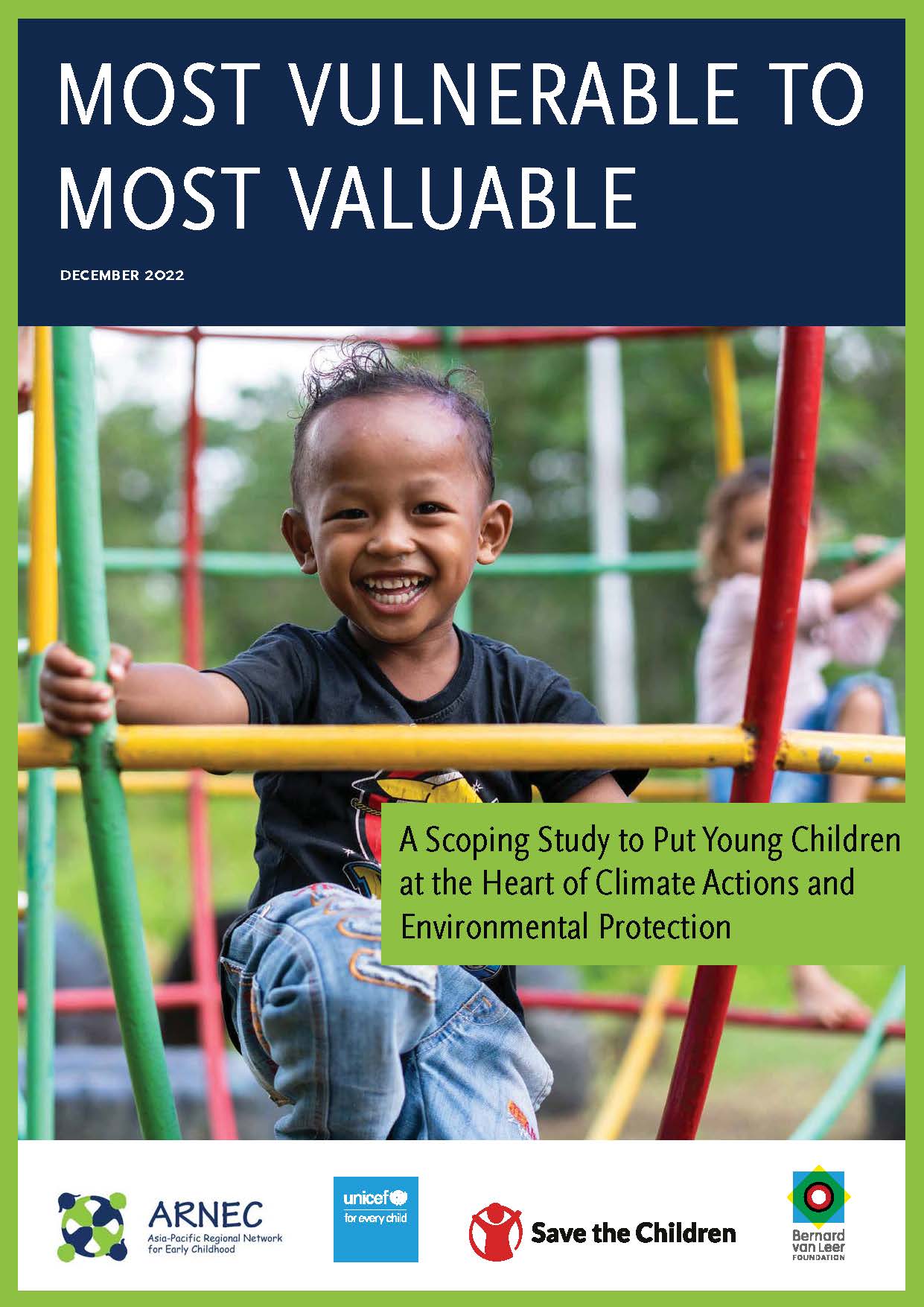Most vulnerable to most valuable: A scoping study to put young children at the heart of climate actions and environmental protection
The Asia-Pacific Regional Network for Early Childhood (ARNEC) in partnership with Save the Children and UNICEF EAPRO has embarked on a scoping study led by the University of Wollongong, Early Start Australia to inform its advocacy for ensuring a clean, safe, and sustainable environment for young children.
The scoping study aims to share the evidence from the Asia-Pacific region and the insights from experts and partners around the world exploring the deep interlinkages between climate change, environmental degradation and ECD to support our goal of enabling ECD systems and services for young children become more climate resilient, adequately funded, and their value better understood and considered by policy makers and climate scientists.
There are three components to the Scoping Study:
1. Global Impacts Survey and Desk Review
2. Sub-Regional Analysis and Case Studies
3. Looking Forward: Recommendations and the Child-Centred Approach
Specifically, the scoping study recognises that there is currently insufficient attention given to the immediate and longer term needs of young children in climate change and environmental actions. It leverages the nurturing care framework for ECD (NCF; WHO et al., 2018), a consensus model incorporating both the needs and rights of young children within their caregiving relationships, to better understand and communicate the impacts of climate change and environmental degradation (CC&ED) on ECD. The Study also elaborates a child-centred approach for governments, decision makers, development agencies, advocacy groups, and key stakeholders to support the incorporation of young children’s needs and rights when considering CC&ED impacts and responses, as well as adaptation and mitigation strategies. Through this process, examples of good practice and areas of innovation and challenges are identified and considered in relation to future planning.
Missed the webinar launch? You can now watch the recording on ARNEC's YouTube and read the full documentation of the webinar on:https://arnec.net/events/webinar-launch-most-vulnerable-most-valuable-scoping-study-put-young-children-heart-climate
Type of document : Evidence/ Policy Briefs and Infographic
Country : Region
Year of publication : 2022
